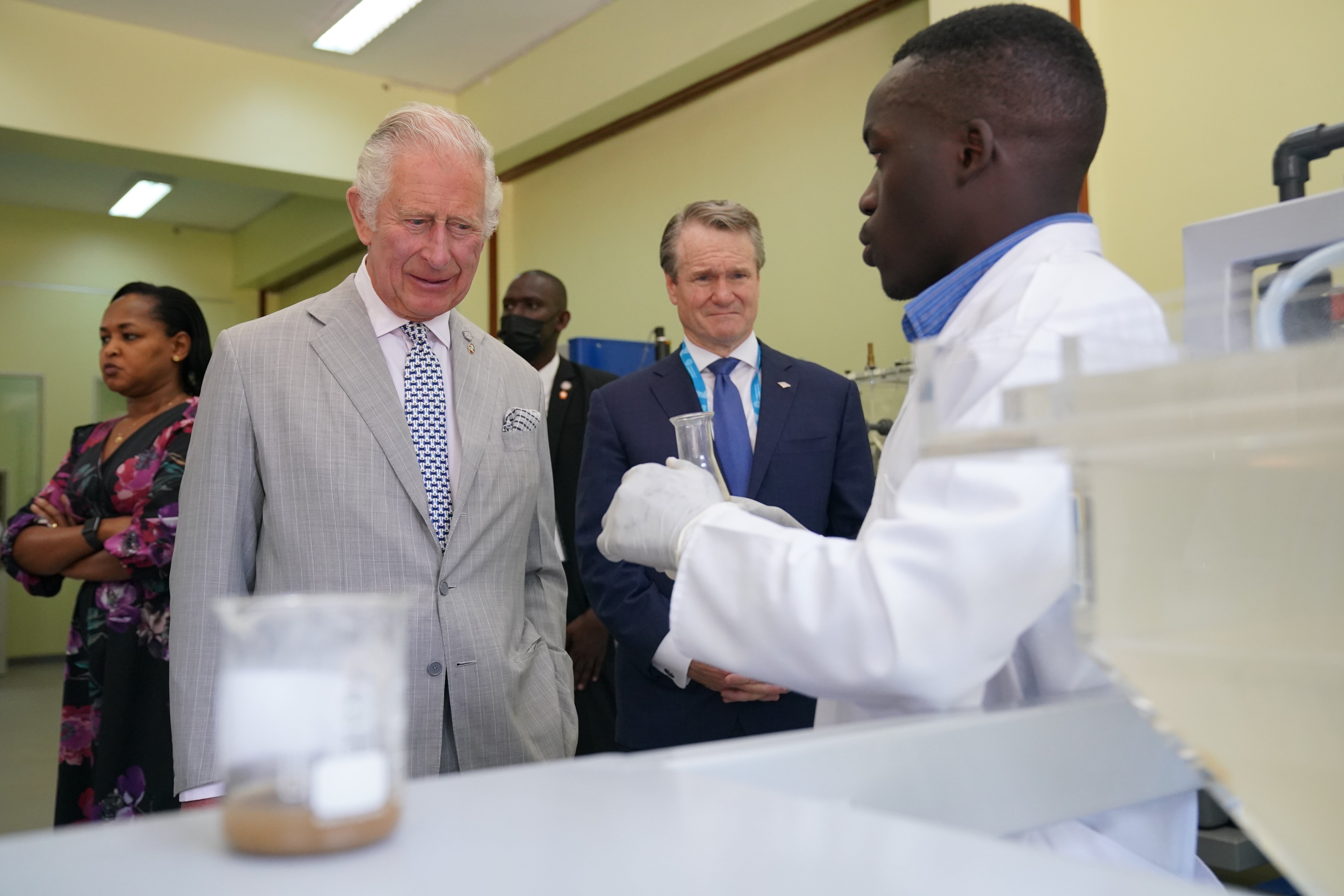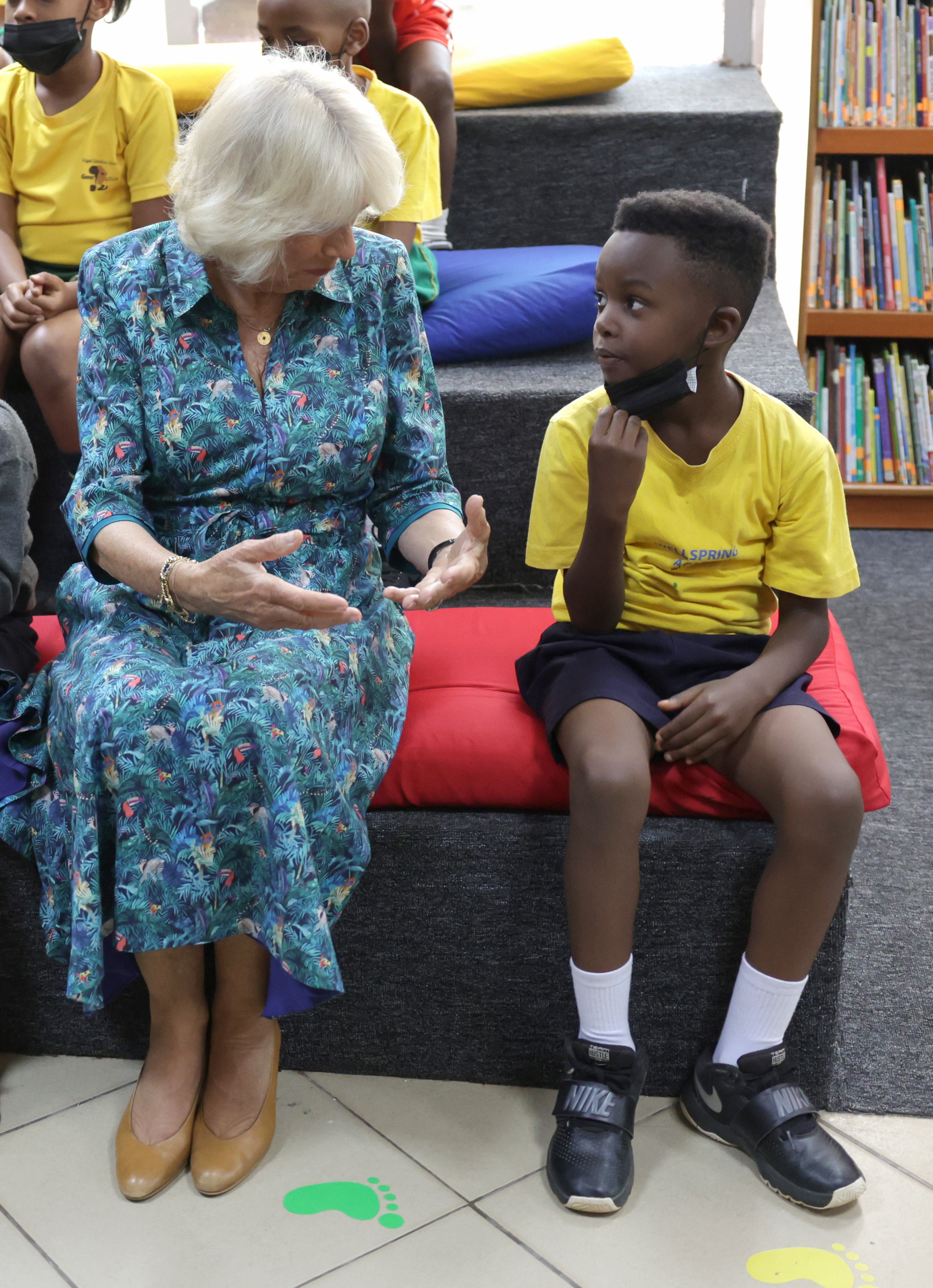
The Prince of Wales has met business leaders in Rwanda as the row of words continued over Charles’ reported criticism of the Government’s scheme to send asylum seekers to the African country.
During his visit to the Commonwealth Business Forum Exhibition village in Kigali, the heir to the throne chatted to David Salmon, 21, a Jamaican scholar, who after meeting the royal spoke of his wish for his homeland to become a republic.
But Charles’ trip to Rwanda, to formally open the Commonwealth Heads of Government Meeting (CHOGM) on Friday, has been overshadowed by his reported comment about the asylum seeker policy, disrupted by legal problems, which he described as “appalling” in private remarks.
Boris Johnson has already struck out at “condescending” opponents of his scheme ahead of talks with the heir to the throne.

It is understood the Prime Minister will visit Charles for a cup of tea on Friday morning, but Mr Johnson is not eager to raise the policy of removing migrants who arrive by unauthorised means on a one-way ticket.
Charles was welcomed to the exhibition village by Clare Akamanzi, chief executive officer of the Rwanda Development Board and Jeremy Cross, the Prince’s Foundation’s international director.
He made his way to Virunga Hall, to meet with stakeholders involved in Commonwealth efforts on sustainable cities, where he visited the wide range of businesses who are exhibiting and taking part in the Commonwealth Business Forum.

Mr Salmon, from Kingston and a graduate of the University of West Indies, has benefitted from the Prince of Wales Commonwealth Scholarship scheme, and is about to do an MPhil in development studies at Cambridge University.
Charles has convened university chancellors on the scholarship, which royal sources said has recently been “revitalised” for small islands and developing states.
The prince and 21-year-old discussed how to make agriculture and the coffee industry more efficient, and after meeting the royal, Mr Salmon said: “I think Jamaica should become a republic but I don’t think we should leave the Commonwealth. It would be a sign of our confidence, our independence and our maturity as a nation.”







